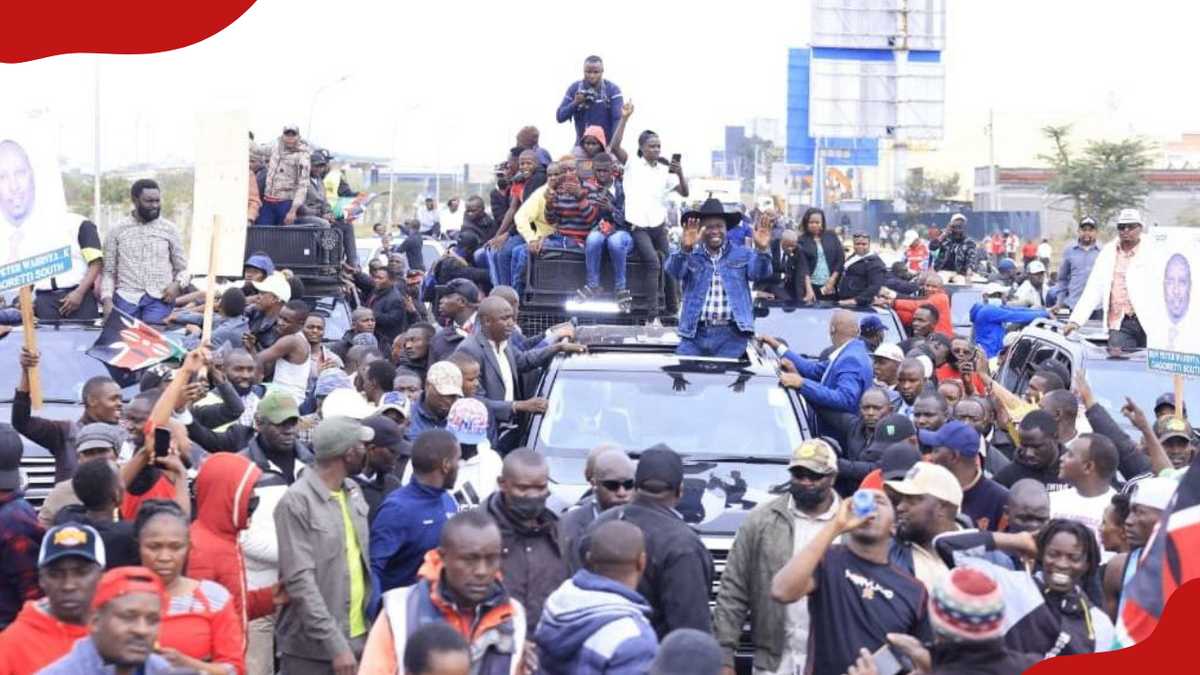
Rigathi Gachagua's Return to Kenya: A Chaotic Arrival and Political Tensions
Former Kenyan Deputy President Rigathi Gachagua’s return to Kenya was marked by a series of unexpected events, raising questions about the security situation and political tensions surrounding his arrival. After landing at Jomo Kenyatta International Airport (JKIA) on Thursday, August 21, Gachagua was expected to address a large gathering in Kamukunji, as part of his campaign activities. However, the planned event did not take place, and instead, Gachagua headed directly to his home following an incident involving his convoy.
The Unfulfilled Rally in Kamukunji
DCP deputy leader Cleophas Malala had previously announced that Gachagua would proceed from JKIA to Kamukunji grounds for a rally, which was supposed to mark a significant moment in his political comeback. However, this plan was disrupted when Gachagua’s convoy came under attack on Mombasa Road. According to reports, goons attempted to interfere with the procession, prompting the police to use tear gas to disperse the crowd. As a result, Gachagua did not make an appearance at the intended location.
Instead of addressing his supporters, Gachagua’s allies took it upon themselves to criticize the government, firing shots at President William Ruto’s administration during various stopovers. This move further intensified the political climate around the former deputy president.
Allegations of Government Surveillance and Arrest Plans
Gachagua’s supporters have raised concerns about potential threats against him, particularly after Interior Cabinet Secretary Kipchumba Murkomen made remarks suggesting that Gachagua might be arrested. His allies claim that as many as 100 police officers were stationed at the airport to intercept Gachagua upon his arrival. Nyandarua Senator John Methu claimed that his supporters managed to prevent any such attempt, expressing gratitude for their vigilance.
Cleophas Malala, DCP’s deputy leader, echoed these claims, stating that the party was prepared to block any effort to apprehend Gachagua. However, Murkomen denied these allegations, emphasizing that no police deployment was ordered to arrest Gachagua. He explained that the officers at JKIA were simply performing their routine duties and had not been instructed to take any special measures against the former deputy president.
Murkomen’s Concerns Over Gachagua’s Allegations
The tension between Gachagua and the government escalated further when Murkomen suggested that Gachagua should be arrested and required to provide formal statements regarding his controversial claims. These allegations included accusations that President Ruto had previously interacted with members of the Somalia-based militant group al-Shabaab and had ties to Sudan’s Rapid Support Forces (RSF). Murkomen described these claims as a threat to national security and insisted that Gachagua must be held accountable.
In response, Malala warned that detaining Gachagua could lead to widespread unrest, as his followers are known to strongly oppose any actions perceived as targeting him. This warning highlights the delicate balance between maintaining law and order and managing the political fallout of such a move.
Ongoing Political Implications
As Gachagua continues to navigate his return to Kenya, the situation underscores the broader political dynamics at play. The allegations he has made, combined with the government’s response, have created a volatile environment. Supporters of Gachagua remain vigilant, while the government maintains its stance on national security and the rule of law.
The events surrounding Gachagua’s arrival serve as a reminder of the complex interplay between political figures, public perception, and state authority. Whether this incident will lead to further developments or simply fade into the background remains to be seen. For now, the focus remains on how both sides will manage the ongoing tensions and what impact this may have on Kenya’s political landscape.

0 Comments